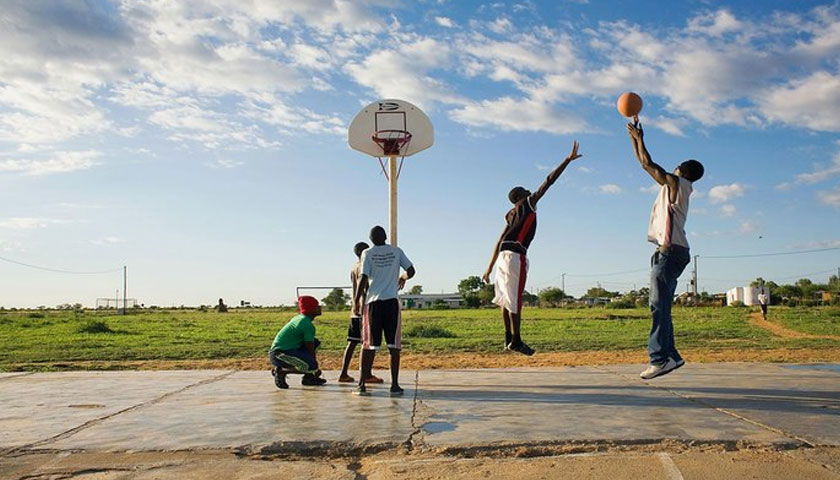When the first-ever Refugee Olympic Team competed in Rio de Janeiro in 2016, it signalled the beginning of a remarkable and crucial set of initiatives which have thrown a lifeline to tens of thousands of refugees forced to flee their homes.
The 10 athletes competing under the Olympic flag at Rio 2016 captured the world’s attention through their bravery, courage and athletic skill, and another Refugee Olympic Team is set to participate in the Olympic Games Tokyo 2020.
Just as importantly, the Refugee Olympic Team Rio 2016 provided the impetus behind the creation of the Olympic Refuge Foundation (ORF) – founded by the IOC in 2017. The Foundation uses sports-based projects to support refugee populations across the world with a focus on protecting, developing and empowering children and youth in vulnerable situations.
“Joining the first Refugee Olympic Team at Rio 2016 changed my life, and I am proud to see that it left a concrete legacy,” said Yiech Pur Biel, a member of the Refugee Olympic Team Rio 2016 and now an ORF Board member. “Through the Olympic Refuge Foundation, our aim is not creating champions, but working every day to improve the lives of young refugees through sport, creating safe environments where they can start building their future”.
The Projects Supported by the Olympic Refuge Foundation
Today the ORF manages programmes involving a multitude of girls and boys across four continents, in collaboration with UNHCR and local partners.
Work started with pilot programmes in Jordan, Kenya and Turkey. In recent years, Jordan has provided refuge to more than 1.3 million Syrians, many of them school-aged children. The aim of the ORF’s two dedicated in-country programmes with Generations for Peace and Right to Play is to integrate Syrian children – and those from Palestinian, Iraqi and Jordanian communities – into Jordanian society using the power of sport.
Similarly, in Kenya the ORF has been working through UNHCR to, among other things, build a multisport facility and provide protection to young people in the Kakuma camp and Kalobeyei settlements. These settlements are home to 186,000 refugees from 19 different countries of which 52,500 are aged between 15 and 24 years old. The over-arching aim of the ORF programme here is to improve social cohesion among the multinational community.
The situation in Turkey is just as vital. In late 2018, figures revealed more than 3.6 million Syrian refugees were registered in a country that has also received hundreds of thousands of asylum-seekers from countries such as Afghanistan, Iraq and Iran. In response, the ORF is forming a coalition with Turkey’s Ministry of Youth and Sport, the Turkish Olympic Committee, UNHCR and a number of local partners to create a joint initiative in five Turkish cities hosting refugees.
The resulting programmes aim to reach more than 40,000 children and young people over two years, protecting vulnerable and disadvantaged children in both refugee and host communities, as well as supporting social cohesion through sport.
IOC-UNHCR Partnership Already 25 Years Old
The partnership with the UN Refugee Agency dates back to 1994, and the mutual commitment to supporting refugees is based on the fundamental belief in the power of sport to make the world a better place.
Before the creation of the Olympic Refuge Foundation, the IOC and UNHCR also started initiatives in Mexico (focusing on young people transiting through the country as they flee violence in their countries), the Democratic Republic of Congo (seeking to improve sporting facilities and organising activities in refugee camps for people to improve their physical and mental health), and Rwanda, where a programme, initiated three years ago, aims to rejuvenate sports grounds.
Rwanda’s sports coordinators and community trainers have since highlighted the positive impact on the psycho-social well-being of participants, reporting that the sports activities have had a strong positive effect, decreasing negative and aggressive attitudes, and increasing productivity and acceptance of others.
The ORF is currently exploring the possibility of implementing additional projects to be developed in Uganda, Bangladesh and Colombia, in collaboration with UNHCR and local partners.
